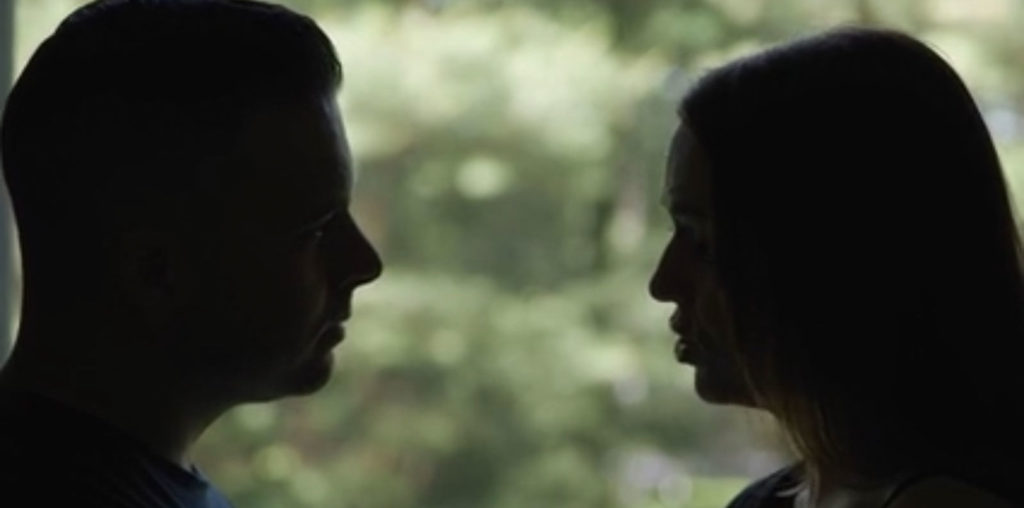
Minor Spoilers Ahead
“Pitch Black” was one of 2000’s pleasant surprises. It was derivative as hell, sure, and the plot was far-fetched enough to give you hives if you wanted to dwell on it. But strong performances – especially from Radha Mitchell as the spaceship pilot and Cole Hauser as a junkie mercenary – and striking visuals helped elevate it over the usual genre schlock. Of course, “Pitch Black” also introduced us to leading man Vin Diesel, whose mass-murdering, “shine job”-equipped Riddick was the embodiment of unrepentant self-interest (until the movie’s end, anyway). When he colorfully informed Keith David’s Imam how much he hated God, it represented a nice Plissken-esque take on the anti-hero, voiced in a way not often seen in mainstream studio pictures.
This brings us to “The Chronicles of Riddick,” which is less a sequel to “Pitch Black” than Chapter 1 to the latter movie’s prologue. With the exception of a handful of references to events in the first movie and two supporting characters, “Chronicles” wipes the slate clean. Writer/director David Twohy says he envisions this as the first in a trilogy of films featuring the now not-quite-so mysterious Riddick, and it’s certainly ambitious enough. Twohy immediately shoves the audience into a new, sprawling mythology, where a race of evil space warriors (known as – don’t laugh – Necromongers) are spreading throughout the universe at the urging of their Lord Marshal (Colm Feore), killing all who refuse to convert to their faith. Meanwhile Riddick, on the run from mercenaries in the five years since the events in “Pitch Black,” is forced to travel to the planet Helion Prime to discover who has put a $1.5 million bounty on his head.
Riddick, predictably, becomes embroiled in Helion Prime’s struggles against the Necromongers at the behest of his old pal Keith David. Along the way, we also learn something of his ancestry, courtesy of the elemental Aereon (played by Judi Dench, who must’ve taken this role as a favor to her grandkids). Riddick also discovers the fate of “Jack,” the only other “Pitch Black” survivor. She’s all grown up, goes by “Kyra” these days, and killing is now her business as well. While all this is going on the Lord Marshal’s loyal lieutenant, Vaako (Karl Urban), begins to ponder the pros and cons of betrayal with urging from his wife (an unpleasant Thandie Newton). Riddick’s quest will eventually take him from arctic exile to Helion Prime to the molten prison planet Crematoria before reaching a climax that not many will see coming.
For space opera fans who’ve been disappointed by the two “Star Wars” prequels (not casting too wide a net, I hope), “The Chronicles of Riddick” is a pleasant surprise. It’s been a long time since anyone bothered to create a new, big budget cinematic mythos out of scratch, and Twohy has poured a great deal of money into the look of his movie. The planetary designs and spacecraft are reminiscent of those found in “Stargate” and “Dune,” to name two obvious inspirations, and it’s hard to find fault with someone broadening the scope of his narrative to include, in essence, the entire universe. There’s a great deal of background to be explored, and one can only assume Twohy will get to that in the sequels.
Like its predecessor, “The Chronicles of Riddick” wears its influences on its sleeve (the Necromongers bear more than a passing resemblance to the Borg, for example) and one is forced to drive through a few obvious plot potholes to reach the ending (why does a prison planet pay for prisoners?). The acting is also a bit stiff, as the principals find themselves uttering dire portents at every opportunity (with the exception of Nick Chinlund as a hapless mercenary). Riddick himself has obviously been spending his time on the run in the company of some Schwarzenegger movies, and the one-liners get old quick. He’s also undergone a metamorphosis from mysterious stranger to the Tick: he’s well-nigh indestructible. Riddick performs such ridiculous acts of superhuman athleticism that, by the end, the audience no longer feels the need to be impressed when he escapes the latest jam. Inserting someone like Riddick into the world of intergalactic politics is an interesting twist, but time will tell if it plays a larger part in his growing love for humanity, on display in the film’s final third.
“The Chronicles of Riddick” isn’t going to win over the art house crowd, but you could do a lot worse for summer entertainment.
Like, say, “Garfield.”
Disagree with this review? Think you can write a better one? Go right ahead in Film Threat’s BACK TALK section! Click here>>>
